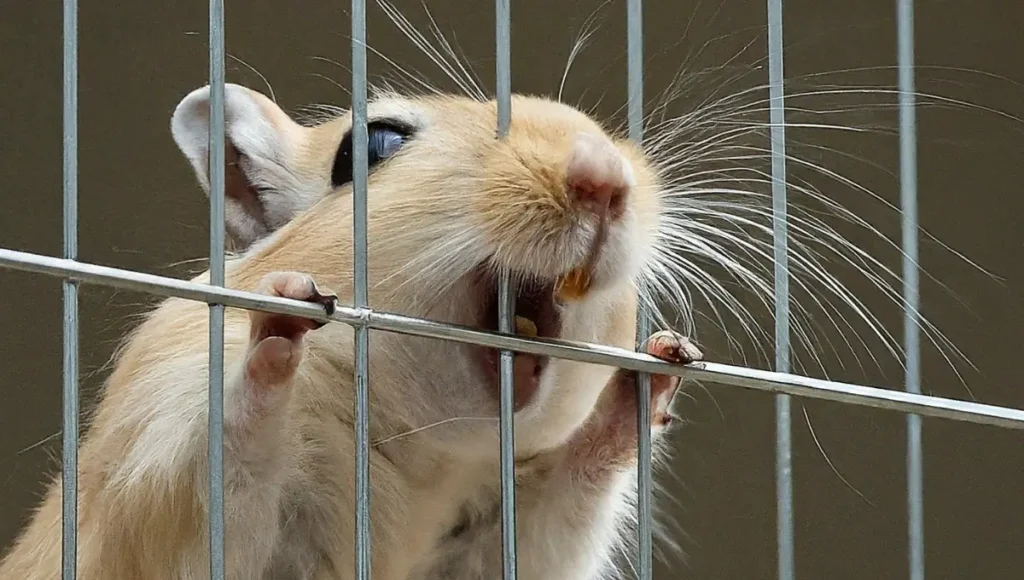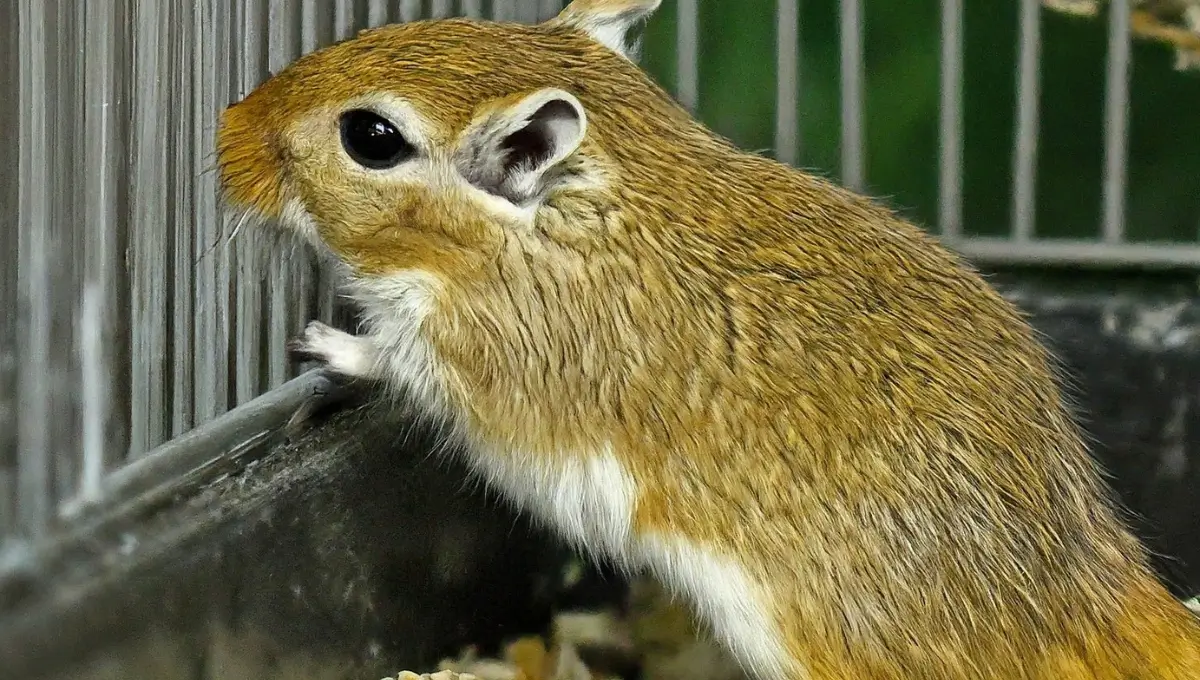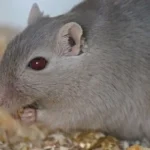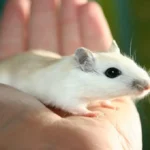Gerbils are fascinating creatures, known for their playful nature and adorable antics. As small pets, they offer a unique blend of companionship and relatively low maintenance care, making them ideal for many pet enthusiasts. However, gerbil owners may sometimes observe a behavior that raises concern: their little friend biting the bars of its cage.
This behavior, while common, can indicate various underlying issues ranging from boredom to health risks. Understanding why gerbils engage in this activity is crucial for their well-being and your peace of mind.
Understanding Gerbil Behavior: The Why Behind Cage Biting
Gerbils are inherently curious and active animals, requiring stimulation and opportunities to engage in natural behaviors. Cage biting can be a sign that your gerbil’s needs are not being fully met. Here’s why your gerbil might be biting its cage:
- Boredom and Lack of Stimulation: Gerbils need regular interaction and environmental enrichment to stay healthy and happy. A lack of toys, exercise, and exploration opportunities can lead to boredom, prompting them to bite the cage as a way to seek attention or alleviate frustration.
- The Need to Wear Down Their Teeth: Gerbils’ teeth grow continuously throughout their lives. Chewing helps keep their teeth at a manageable length. Without appropriate materials to gnaw on, gerbils may turn to the bars of their cage as an alternative.
- Small or Inadequate Living Space: A cramped or poorly designed cage can make gerbils feel trapped and stressed. This discomfort can lead to cage biting as an attempt to escape or simply to express their dissatisfaction with their environment.
- Stress and Anxiety: Changes in the environment, loud noises, or the presence of other pets can stress gerbils. Cage biting can be a manifestation of this stress, serving as a coping mechanism for the anxious pet.
Health Risks Associated with Cage Biting
While it might seem like a harmless habit at first, cage biting can lead to several health issues for gerbils:
- Dental Problems: Constant gnawing on hard, metal bars can damage a gerbil’s teeth, leading to misalignment or breakage. This can make it difficult for them to eat properly and may require veterinary intervention.
- Potential for Escape: Over time, a determined gerbil can weaken the integrity of the cage bars, creating an opportunity to escape. Once outside their safe enclosure, gerbils are at risk of injury or getting lost.
- Risk of Injuries and Infections: Continuous biting and chewing on metal bars can cause sores around the mouth or on the paws. These injuries can become infected, posing a significant health risk to your gerbil.
Addressing the root causes of cage biting is essential for preventing these health issues. By understanding your gerbil’s needs and ensuring they are met, you can create a stimulating and safe environment that discourages this behavior.
Also read: How to Stop a Gerbil from Biting?
Solutions and Preventive Measures for Gerbil Cage Biting

Creating a stimulating and safe environment for your gerbil is key to preventing cage biting. Here are effective solutions and preventive measures to ensure your gerbil’s happiness and well-being.
Improving the Living Environment
Suitable Cage Types and Sizes: Opt for a spacious gerbil cage or a gerbilarium with a deep base for burrowing, as these provide ample space for exercise and exploration without the temptation of cage bars. Ensure the enclosure is large enough to accommodate your gerbil’s needs, typically ranging from 10 to 20 gallons for a pair of gerbils.
Importance of Enrichment Toys and Activities: Enrich your gerbil’s habitat with a variety of toys, tunnels, and climbing structures. Offer different textures and materials for chewing, such as untreated wooden blocks, cardboard tubes, and natural fibers. Rotate these toys regularly to keep your gerbil’s environment engaging and new.
Providing Appropriate Chew Materials
Safe Materials for Chewing: Provide plenty of safe, gerbil-specific chew toys available at pet stores. These are designed to satisfy your gerbil’s natural urge to gnaw while being safe for ingestion. Avoid plastic toys that can cause intestinal blockages if ingested.
Items to Avoid: Steer clear of cedar and pine bedding, as the oils can be harmful to gerbils. Also, avoid giving your gerbil anything made of soft plastic or materials that can splinter, posing a risk of injury or ingestion.
Regular Interaction and Exercise
The Role of Playtime and Handling: Daily interaction and supervised playtime outside the cage can significantly reduce boredom and stress, deterring cage biting. Use this time to bond with your gerbil and provide a change of scenery and stimulation.
Setting Up a Gerbil-Friendly Play Area: Create a secure play area with tunnels, toys, and obstacles for your gerbil to explore. Ensure the area is escape-proof and monitor your gerbil closely during playtime.
When to Consult a Veterinarian
Despite your best efforts, if cage biting persists, it may be a sign of an underlying health issue or dental problem. Here’s when to seek professional advice:
- Signs of Health Issues Related to Cage Biting: If you notice any injuries, sores, or changes in eating habits, consult a veterinarian. They can assess whether dental issues are causing discomfort and leading to cage biting.
- Professional Advice and Intervention: A vet can provide solutions for dental care, recommend dietary changes, or suggest environmental modifications to address the root cause of cage biting.
FAQs
What materials are safe for my gerbil to chew on?
Safe chew materials for gerbils include untreated wood, cardboard, hay cubes, and commercial gerbil chews. These items satisfy their natural urge to gnaw without posing health risks. Avoid treated woods and plastics, which can harm your gerbil if ingested.
How can I tell if my gerbil is bored?
Signs of boredom in gerbils include repetitive behaviors such as cage biting, lack of interest in their environment, decreased activity levels, and ignoring food or toys. Providing a variety of toys and regular interaction can help alleviate boredom.
Can cage biting lead to serious health issues?
Yes, cage biting can lead to dental issues, such as misaligned or broken teeth, and injuries around the mouth or paws. These problems can affect your gerbil’s ability to eat and lead to infections, highlighting the importance of addressing this behavior promptly.
How often should I interact with my gerbil to prevent cage biting?
Daily interaction is crucial for preventing cage biting. Spend time each day handling your gerbil, offering playtime outside the cage, and introducing new toys or activities. This helps keep your gerbil stimulated and reduces the likelihood of stress-related behaviors.
Conclusion
Understanding why gerbils bite their cages is the first step towards ensuring their well-being. By providing a stimulating environment, appropriate chew materials, and regular interaction, you can significantly reduce the occurrence of this behavior.
Remember, a happy gerbil is one that feels safe, entertained, and cared for. If cage biting persists despite these efforts, consulting a veterinarian can help address any underlying health issues, ensuring your furry friend remains healthy and content in their home.











